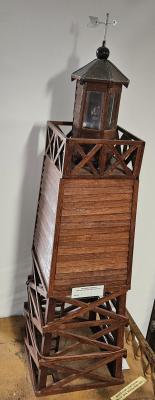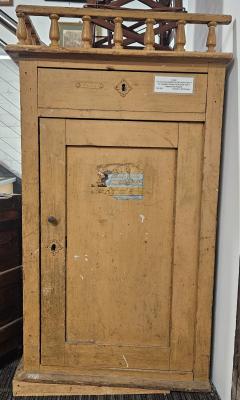AGA Gas Beacon
AGA Gas Beacon made in Sweden. This beacon used acetylene gas and was stationed at the end of the Busselton jetty as warning to ships prior to the installation of an electric beacon. The glass around the burner is broken.
AGA AB was started in 1904 near Stockholm, Sweden, by 35-year-old engineer Gustaf Dalen. The very next year AGA developed an automatic lighthouse mechanism that used acetylene and included the sun valve and the intermittent light regulator. Acetylene, with its bright light, was an excellent fuel for lighthouses, but it was too expensive when burned all day. However with the introduction of AGA’s intermittent light regulator which reduced fuel consumption by almost 95 percent it meant lighthouses could be operated at a low cost and left unattended for long periods of time.
In 1912, after Dalén was left blind following an explosion that occurred while he was testing safety devices on acetylene cylinders, AGA won a contract to build a lighthouse system for the Panama Canal and Dalen was awarded the Nobel Prize in Physics for his inventions in lighthouse technology.
Details
Details
In 1836 a light beacon was erected for the Busselton Jetty located north of what is now the Marine Terrace and Queen Street junction, as a navigational aid. This beacon consisted of a spar,10m high with a barrel containing a lamp on top and was affectionately known as ‘The Tub’.
In 1873 a lighthouse replaced ‘The Tub’ which was built of Jarrah timber from the Lockeville-Ballarat Timber Company at Wonnerup, it stood 70 feet high and the kerosene lamp projected a light that could be seen for 20 miles seaward. From under the beams hung a ships bell which was rung to announce the arrival of a ship in port. This light house stood until 1933 when it was demolished and replaced with this smaller beacon which placed at the end of the jetty.
Near Stockholm
Other items from Busselton Historical Society
Scan this QR code to open this page on your phone ->


